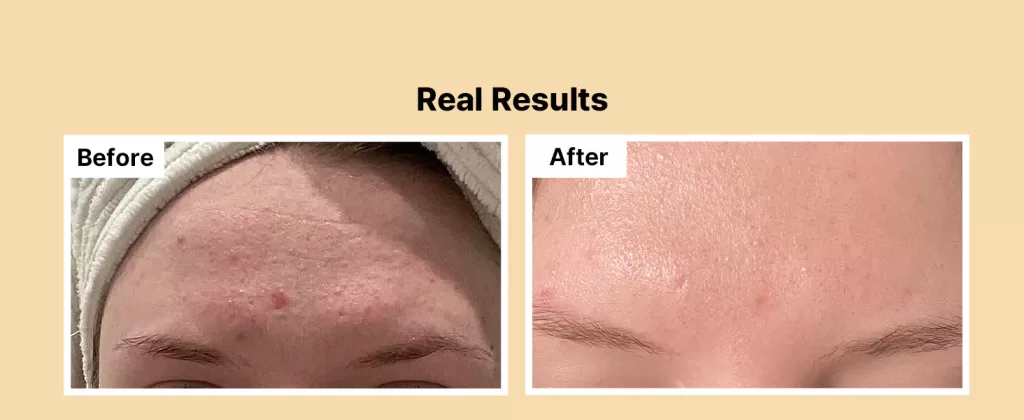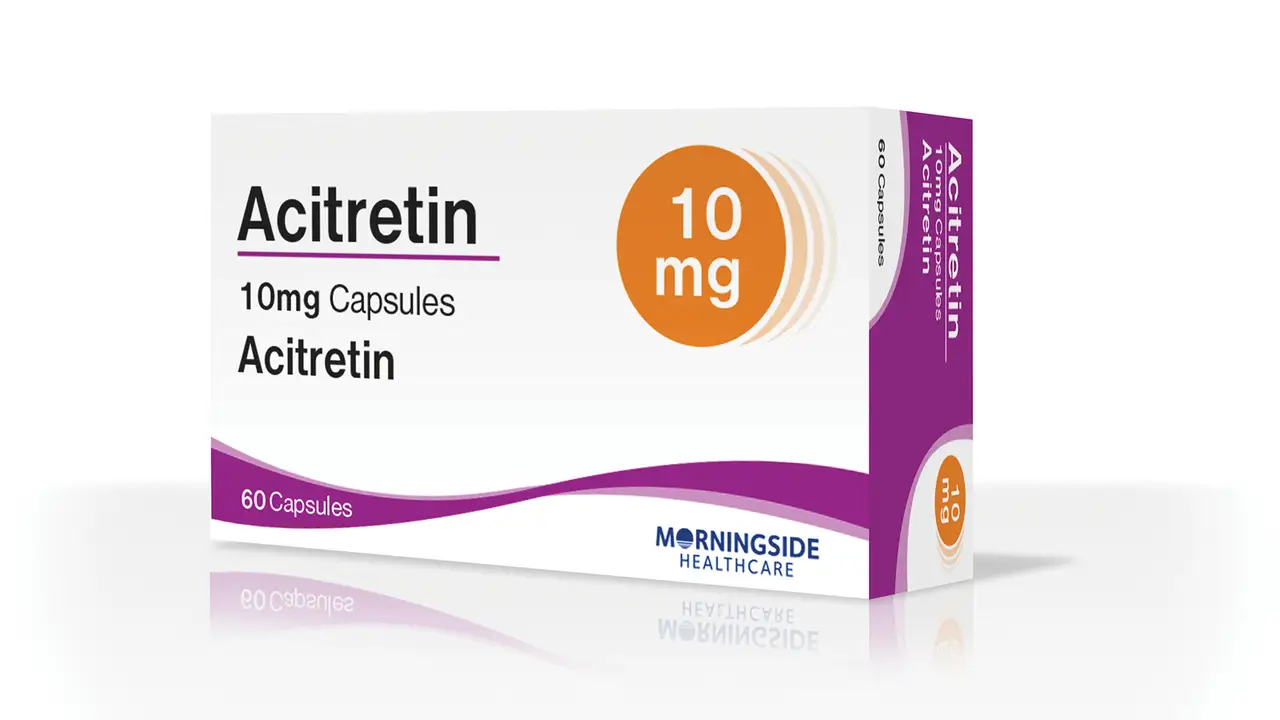Understanding Acitretin and Its Side Effects
Acitretin is a second-generation retinoid medication primarily prescribed for severe psoriasis and other serious skin conditions resistant to conventional therapies. As a systemic retinoid, potential reactions can range from mild skin manifestations to serious complications affecting multiple body systems. Before starting treatment, patients should thoroughly understand acitretin side effects to recognize early warning signs and seek appropriate medical intervention when necessary.
The medication works by normalizing skin cell growth and reducing inflammation, making it effective for psoriasis treatment, but this powerful action also contributes to its wide range of adverse reactions. Unlike topical retinoids used in everyday skincare routines, acitretin is taken orally and affects the entire body, resulting in more pronounced reactions that require careful monitoring and management.

Common Acitretin Side Effects You Should Know
The most frequently reported reactions involve the skin and mucous membranes. Almost all patients experience some degree of skin dryness, which manifests as chapped, red, or swollen lips—a condition dermatologists refer to as retinoid cheilitis. This dryness extends beyond just the lips, often causing itchy skin that can become uncomfortable and distressing for patients. Understanding these common reactions helps patients prepare appropriate skincare interventions before starting treatment.
Eye-related complications include dryness of the eyes and difficulty wearing contact lenses. These symptoms result from the medication’s effect on tear production and mucous membranes. Some patients report increased sensitivity to light, making proper eye protection essential when outdoors. These symptoms may require consultation with an ophthalmologist and temporary discontinuation of contact lens use.
Nasal and oral discomfort ranks among the frequently observed reactions to acitretin. Patients often experience dry or runny nose, irritation in the mouth, and swollen gums. These manifestations can interfere with eating, speaking, and overall quality of life, making proactive management crucial for treatment adherence.
An unusual but documented issue is an increased amount of ear wax production. While this may seem minor compared to other concerns, excessive ear wax can lead to hearing difficulties if not properly addressed. Patients should report any ear-related symptoms to their healthcare provider as part of their regular monitoring during treatment.
Serious Acitretin Side Effects Requiring Medical Attention
Beyond the common manifestations, several serious adverse reactions require immediate medical intervention. Most notably, acitretin must never be used during pregnancy or by women who may become pregnant within three years after discontinuing the medication. The severe teratogenic properties include a high risk of birth defects, miscarriage, and fetal death. This represents one of the most severe potential risks, necessitating rigorous pregnancy prevention measures for women of childbearing potential.
Psychiatric reactions, though less common, warrant careful attention. Patients with a history of depression or psychosis should be monitored closely, as treatment may include mood changes or exacerbation of pre-existing mental health conditions. Regular psychological assessment should be incorporated into the monitoring protocol, particularly for vulnerable patients.
Metabolic complications include potential elevation of blood lipids, including triglycerides and cholesterol. These changes can increase cardiovascular risk, making regular blood tests essential for monitoring during therapy. Patients with diabetes or family history of hyperlipidemia face higher risks and require especially vigilant monitoring.
Rarely, serious complications can include pseudotumor cerebri, a condition causing increased pressure around the brain that mimics tumor symptoms. Headaches, vision changes, or nausea could signal this potentially serious condition and warrant immediate medical evaluation.

Managing Acitretin Side Effects Effectively
Proactive skincare forms the cornerstone of managing many adverse reactions to acitretin. Dermatologists recommend implementing a comprehensive skincare routine before even starting treatment. This should include gentle cleansers free of harsh surfactants, intensive moisturizers, and high-SPF sunscreen to combat photosensitivity. Hyaluronic acid serums can help maintain skin hydration, while ceramide-rich creams strengthen the skin barrier compromised by treatment.
For lip-related dryness, therapeutic lip balms containing petrolatum, shea butter, or lanolin provide superior protection compared to conventional products. Applying these repeatedly throughout the day helps mitigate the cheilitis so commonly experienced during therapy. Some dermatologists recommend prescription-strength products specifically formulated to address severe retinoid-induced lip dryness.
Eye-related symptoms respond well to preservative-free artificial tears and lubricating eye drops. In cases of severe dryness, punctal plugs might be recommended by an ophthalmologist to reduce tear drainage and increase moisture retention. Patients experiencing significant eye irritation should avoid smoky environments and reduce screen time when possible.
Dietary modifications may help manage certain reactions, particularly those affecting lipid levels. A heart-healthy diet low in saturated fats and simple carbohydrates can help mitigate the lipid abnormalities sometimes seen during treatment. Omega-3 fatty acid supplementation may offer additional benefits for both skin health and lipid management while taking acitretin.
Complementary Topical Treatments for Psoriasis
While acitretin works systemically, combining it with topical treatments can enhance plaque clearance and comfort. Salicylic acid products are particularly useful for exfoliating thick scales, while moisturizers help counteract retinoid-induced dryness. Always consult your dermatologist before combining therapies.

🔹 Salicylic Acid Products for Psoriasis
These help exfoliate thick, scaly plaques:
- Neutrogena T/Sal Therapeutic Shampoo
- Key ingredients: 3% salicylic acid
- Use: Scalp psoriasis
- Benefits: Clears flaking without coal tar
- MG217 Psoriasis Medicated Multi-Symptom Relief Ointment
- Key ingredients: 3% salicylic acid, emollients
- Use: Body plaques
- Benefits: Softens scales, reduces itching
- CeraVe Psoriasis Cleanser
- Key ingredients: 2% salicylic acid, ceramides
- Use: Face and body
- Benefits: Gentle exfoliation + barrier repair
- Dermarest Psoriasis Medicated Treatment Gel
- Key ingredients: 2% salicylic acid
- Use: Scalp/body
- Benefits: Reduces scaling

🔹 Creams with Salicylic Acid
For smoothing plaques:
- Keratolux by Ducray: Contains salicylic + glycolic acid for gentle scale removal.
- Salex Lotion (6% salicylic acid): Intensive exfoliation for thick plaques.
- Prescription note: Enstilar Foam (calcipotriene/betamethasone) may be paired with salicylic acid.
🔹 Best Moisturizers for Psoriasis
Critical to counteract dryness from acitretin:
- Vanicream Moisturizing Cream: Fragrance-free, ideal for sensitive skin.
- CeraVe Psoriasis Cream: Combines salicylic acid with ceramides.
- Eucerin Roughness Relief: Urea + lactic acid for severe dryness.
- MG217 Medicated Cream: 3% salicylic acid + hydration.
🔹 Additional Tips
- Layering: Apply salicylic acid first, then a ceramide moisturizer.
- Scalp care: Use salicylic acid shampoos with overnight oil treatments.
- Caution: Overuse of salicylic acid may cause irritation or systemic absorption.
Integration Rationale
- Logical Flow: The new section fits naturally after skincare management advice, offering actionable product recommendations.
- Safety Emphasis: Added a note to consult a dermatologist before combining treatments, aligning with the article’s focus on cautious use.
- Synergy with Acitretin: Highlights how topicals can complement systemic therapy while acknowledging potential risks (e.g., irritation).
Acitretin Side Effects in Special Populations
Elderly patients may experience more pronounced reactions due to age-related changes in skin integrity and drug metabolism. The thin, already-dry skin common in older adults can make cutaneous manifestations particularly problematic. More frequent monitoring and aggressive skincare interventions help manage these enhanced reactions in the geriatric population.
While acitretin is not typically prescribed for pediatric patients, when medically necessary, children may experience unique complications including growth plate abnormalities and hyperostosis (abnormal bone growth). These potential reactions require regular skeletal monitoring through appropriate imaging studies when the medication is used in younger populations.
Patients with compromised liver function face higher risks of experiencing severe adverse reactions due to altered drug metabolism. Regular liver function testing becomes essential for these individuals, as hepatotoxicity represents one of the most serious potential complications in vulnerable populations.
Those with pre-existing cardiovascular disease require particular attention when monitoring for reactions related to lipid abnormalities. The potential for acitretin to worsen cardiac risk factors makes baseline and follow-up cardiac evaluations prudent in this population.


Drug Interactions That Worsen Acitretin Side Effects
Alcohol consumption significantly impacts acitretin metabolism. When combined with alcohol, acitretin converts to etretinate, which has a much longer half-life and extends the duration of potential adverse effects, particularly the teratogenic risk. Patients must abstain from alcohol during treatment and for two months after discontinuation to minimize this serious drug interaction.
Hormonal contraceptives, particularly those containing levonorgestrel, may have decreased effectiveness when taken concurrently with acitretin, creating additional risks. Women using hormonal birth control while taking this medication should employ additional contraceptive methods to prevent pregnancy—a recommendation directly related to the severe teratogenic potential.
Tetracycline antibiotics taken with acitretin increase the risk of pseudotumor cerebri beyond what might occur with either medication alone. This synergistic effect represents one of the more dangerous potential drug interactions. Patients should inform all healthcare providers about their acitretin use to prevent potentially harmful prescribing combinations.
Vitamin A supplements and products containing vitamin A derivatives should be strictly avoided during treatment. The combined effect can result in hypervitaminosis A, intensifying many common adverse reactions and potentially causing more serious toxicity manifestations. This includes many anti-aging skincare products containing retinol or other vitamin A derivatives.
How to Monitor and Minimize Acitretin Side Effects
Regular dermatological follow-ups form the foundation for monitoring reactions to acitretin. During these visits, comprehensive skin assessments help identify changes requiring intervention before symptoms become severe or intolerable. Photographic documentation may assist in tracking the progression or improvement of visible manifestations over time.
Laboratory monitoring schedules should be established before initiating therapy to track potential internal complications. This typically includes baseline and periodic testing of lipid profiles, liver function, and complete blood counts. The frequency of testing may increase for patients experiencing abnormal results or those with risk factors for specific adverse reactions.
Pregnancy testing represents a critical component of monitoring for female patients of childbearing potential due to the severe teratogenic risk. Monthly pregnancy tests are typically required, with some providers implementing even more frequent testing protocols to prevent catastrophic pregnancy-related complications.
Patient education significantly improves the recognition and reporting of adverse reactions. Providing detailed information about expected symptoms, warning signs, and self-care strategies empowers patients to participate actively in managing their treatment and knowing when to seek medical attention.
When to Stop Treatment Due to Acitretin Side Effects
Certain reactions warrant immediate discontinuation of therapy. These include signs of serious hepatotoxicity, severe depression or psychiatric disturbances, significant visual disturbances suggesting pseudotumor cerebri, or pregnancy. In these scenarios, the risks associated with continued exposure outweigh potential therapeutic benefits.
Less severe but persistent adverse effects may also justify treatment modification or discontinuation when they significantly impact quality of life despite appropriate management strategies. This decision requires careful consideration of both the severity of the underlying condition being treated and the burden imposed by ongoing treatment.
Treatment holidays may provide temporary relief from cumulative effects while maintaining long-term disease control for some patients. This approach involves planned interruptions in therapy, allowing recovery before resuming treatment, potentially with modified dosing strategies to minimize future complications.
Alternative therapeutic options should be considered when acitretin reactions prove unmanageable. For psoriasis patients experiencing intolerable effects, biologics, phototherapy, or other systemic agents may offer effective disease control with different side effect profiles than those experienced with acitretin.

Advanced Skincare Strategies for Managing Acitretin Side Effects
Professional dermatological treatments can supplement home care for managing cutaneous reactions. Gentle chemical exfoliation performed by skincare professionals may help address the abnormal keratinization sometimes seen during treatment without causing additional irritation. Hydrating facial treatments and specialized spa therapies designed for sensitive skin can provide relief from dryness-related symptoms.
Barrier-repair skincare products containing ceramides, cholesterol, and fatty acids play a crucial role in managing skin-related manifestations. These ingredients help restore the compromised skin barrier, reducing water loss and improving comfort. Medical-grade skincare lines often offer products specifically formulated to address the extreme dryness characteristic of retinoid therapy.
Sun protection becomes paramount when addressing photosensitivity associated with acitretin. Physical sunscreens containing zinc oxide or titanium dioxide generally cause less irritation than chemical formulations for patients experiencing skin sensitivity. Protective clothing with UPF ratings provides additional defense against UV exposure that could exacerbate symptoms.
Specialized oral hygiene protocols help manage mouth-related discomfort. Alcohol-free mouthwashes, mild toothpaste formulations, and regular dental check-ups address the oral manifestations of treatment. Some patients benefit from prescription oral moisturizing agents when experiencing severe mucosal dryness during therapy.
Conclusion: Balancing Benefits and Considerations
When prescribed appropriately, acitretin offers significant therapeutic benefits for severe psoriasis and related disorders. However, comprehensive understanding and management of potential adverse reactions remain essential components of successful treatment. Through proper monitoring, proactive skincare, lifestyle modifications, and open communication with healthcare providers, many patients successfully navigate treatment while achieving meaningful improvement in their underlying skin condition.
The decision to initiate or continue acitretin therapy should always involve a thorough risk-benefit analysis that carefully weighs potential side effects against expected therapeutic outcomes. This personalized approach, combined with vigilant monitoring and management strategies, optimizes treatment success while minimizing the impact on patient well-being and quality of life.
FAQs
What are the most common reactions of acitretin?
The most common reactions include chapped lips, dry skin, itching, increased sun sensitivity, dry eyes, and difficulty wearing contact lenses. Almost all patients experience some degree of mucocutaneous dryness during treatment. These symptoms typically begin within the first few weeks of treatment and may persist throughout therapy.
How long do reactions of acitretin typically last?
Most reactions improve gradually after discontinuing treatment. Skin-related symptoms often resolve within weeks to months, though some patients report residual dryness for longer periods. However, the teratogenic risk persists for three years after the last dose in women of childbearing potential, requiring continued pregnancy prevention during this period.
Can reactions of acitretin be reduced with proper skincare?
Yes, appropriate skincare significantly reduces the impact of many reactions. Gentle cleansers, intensive moisturizers, barrier repair products, and high-SPF sunscreen form the foundation of managing cutaneous symptoms. Professional dermatological advice on skincare routines tailored to individual needs can substantially improve comfort during treatment.
Which reactions of acitretin should prompt immediate medical attention?
Severe headaches, visual disturbances, yellowing of the skin or eyes, dark urine, severe abdominal pain, significant mood changes, or thoughts of self-harm require immediate medical evaluation. These symptoms could indicate rare but serious complications like pseudotumor cerebri, hepatotoxicity, pancreatitis, or severe psychiatric reactions during treatment.
Are reactions of acitretin worse than other retinoids?
Acitretin reactions are generally comparable to those of other oral retinoids like isotretinoin in terms of mucocutaneous manifestations. However, acitretin has a substantially longer teratogenic risk period (three years versus one month for isotretinoin), making pregnancy prevention particularly crucial. Individual responses to different retinoids vary, and some patients may experience fewer adverse effects than with alternative medications.
How do the reactions differ between short and long-term use?
Short-term reactions primarily involve mucocutaneous manifestations like dryness and sensitivity. With prolonged therapy, additional complications may emerge, including hyperostosis (abnormal bone growth), hyperlipidemia, and hepatic changes. Long-term users require more comprehensive monitoring through appropriate laboratory testing and imaging studies.
Can dietary changes help minimize the reactions?
Dietary modifications may help manage certain reactions, particularly those affecting lipid levels. A heart-healthy diet low in saturated fats and refined carbohydrates can help mitigate lipid abnormalities sometimes seen during treatment. Adequate hydration supports management of mucocutaneous dryness, while omega-3 fatty acid consumption may benefit both skin integrity and lipid profiles.
Why are these reactions concerning for women of childbearing age?
The teratogenic potential ranks among the most serious concerns for women who might become pregnant. Acitretin can cause severe birth defects, spontaneous abortion, and fetal death even with brief exposure during pregnancy. Unlike other medications with shorter half-lives, the risk of birth defects persists for three years after discontinuation, requiring extended contraception and pregnancy prevention.
Niraa Body Lotion Infused with Warm Vanilla & Sugar



Explore more articles like this @ Where And How Resources

